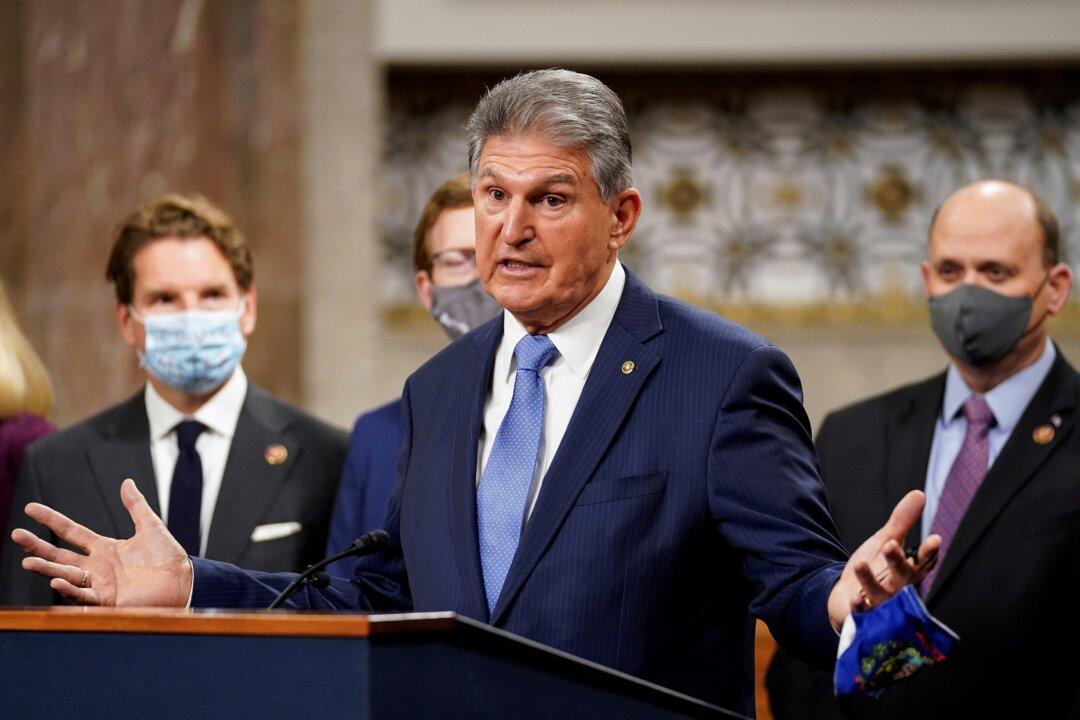Sen. Joe Manchin (D-W.Va.) told reporters on Wednesday that the S. 1 election reform bill, the Senate version of H.R. 1, presently covers too many areas. He suggested it would get broader support if it was focused on only voting rights, specifically making voting more secure and accessible.
“I think there’s so much good in there and so many things, I think all of us should be able to be united around voting rights, but it should be limited to the voting rights and not exclusively to so many other areas,” Manchin said.





